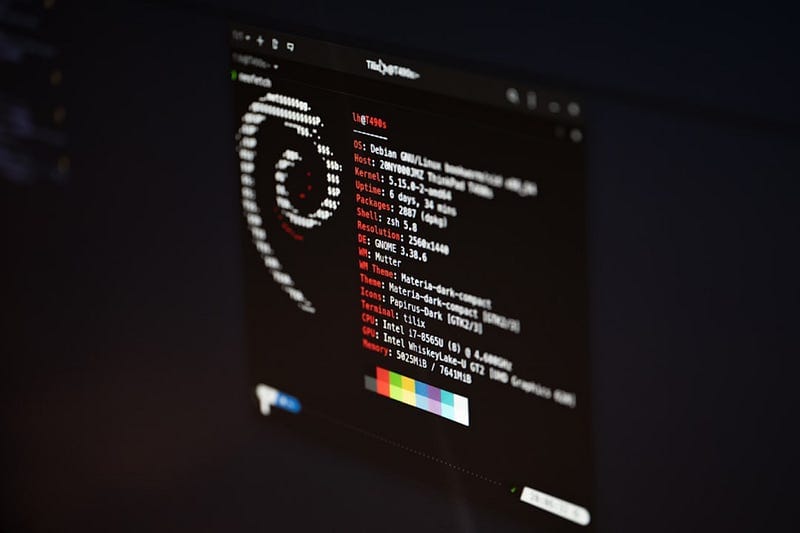The Most Dangerous Linux Commands You Should NEVER Run in Production (Seriously, Don’t!)
These dangerous Linux commands can wipe your system or cause irreversible damage – avoid them at all costs!

Think before you type!
The Most Dangerous Linux Commands You Should NEVER Run in Production (Seriously, Don’t!)
Linux is a powerful operating system, but with great power comes great responsibility. A single mistyped or misunderstood command can wipe out an entire system, delete crucial data, or make your server completely unbootable.
If you’re working in a production environment, you need to be extra careful. Here’s a list of some of the most dangerous Linux commands that you should never run — unless you’re absolutely sure of what you’re doing.
1. rm -rf / – The Infamous System Killer
This command forcefully deletes everything on your system, including the operating system itself. The rm -rf command:
r(recursive) makes it delete directories and their contents.f(force) prevents it from asking for confirmation./is the root directory, meaning everything goes.
Example of disaster:
rm -rf /Running this on a production server is like setting off a bomb — your system will be completely wiped out.
Safer alternative: If you need to clean up files, always use:
rm -i filenameThe -i flag prompts for confirmation before deletion.
2. :(){ :|:& };: – The Fork Bomb
This is a denial-of-service (DoS) attack on your own machine. It creates a function (:) that calls itself multiple times, rapidly consuming all system resources until it crashes.
Example of disaster:
:(){ :|:& };:Running this will freeze your system by spawning endless processes until there’s no memory or CPU left.
Safer alternative: If you’re testing process limits, use:
ulimit -u 1000This limits the number of processes a user can create, preventing a fork bomb.
3. dd if=/dev/zero of=/dev/sda – Disk Wipe
This command overwrites your entire disk with zeros, permanently erasing all data.
Example of disaster:
dd if=/dev/zero of=/dev/sdaif=/dev/zeroprovides an infinite stream of zeros.of=/dev/sdawrites those zeros to your main hard drive, effectively nuking it.
Safer alternative: If you need to securely erase a file, use:
shred -u filenameThis overwrites a file multiple times before deleting it.
4. chmod -R 777 / – The Ultimate Security Risk
Giving full read, write, and execute permissions (777) to every file on your system is a huge security risk. It allows any user (or malware) to modify system-critical files.
Example of disaster:
chmod -R 777 /-Rapplies it recursively to every file and folder.777gives everyone full control over the system.
Safer alternative: If you need to fix permissions, use:
chmod 755 filenameThis keeps files secure while allowing execution where needed.
5. mv /bin /tmp – Breaking Essential Commands
This command moves essential system binaries (like ls, cd, rm, and bash) to another location, making the system practically unusable.
Example of disaster:
mv /bin /tmp/bincontains critical system commands.- Moving it disables basic functionality, potentially requiring a full recovery.
Safer alternative: If you need to modify system binaries, always back them up first:
cp /bin/filename /tmp/filename.bak6. echo "something" > /dev/sda – Corrupting Your Hard Drive
This command writes raw data directly to the disk, potentially corrupting the filesystem.
Example of disaster:
echo "hello" > /dev/sda/dev/sdais your primary hard drive.- Writing random data to it destroys the partition table.
Safer alternative: If you need disk information, use:
lsblkor
fdisk -lThese commands show disk partitions without modifying anything.
7. mkfs.ext4 /dev/sda – Formatting Disaster
This command formats your entire disk, erasing all data.
Example of disaster:
mkfs.ext4 /dev/sdaRunning this on a live server means instant data loss.
Safer alternative: If you need to format a specific partition, double-check before running:
mkfs.ext4 /dev/sdXwhere X is the correct partition, not the entire disk.
8. > file – Truncating Files by Mistake
This command empties a file instantly. If you do this to a critical config file, you may break an application or even the entire system.
Example of disaster:
> /etc/passwdThis deletes all user account information, making login impossible.
Safer alternative: Always backup files before modifying them:
cp /etc/passwd /etc/passwd.bakFinal Thoughts: Think Before You Type!
Linux is a powerful system, but even experienced users can make mistakes. Always:
✔ Double-check commands before running them.
✔ Use version control or backups before making major changes.
✔ Run commands in a test environment before deploying to production.
If you’re ever unsure about a command, stop and research it first — because one wrong move could take down an entire system.
Have you ever encountered a dangerous command in the wild? Share your experiences in the comments!





